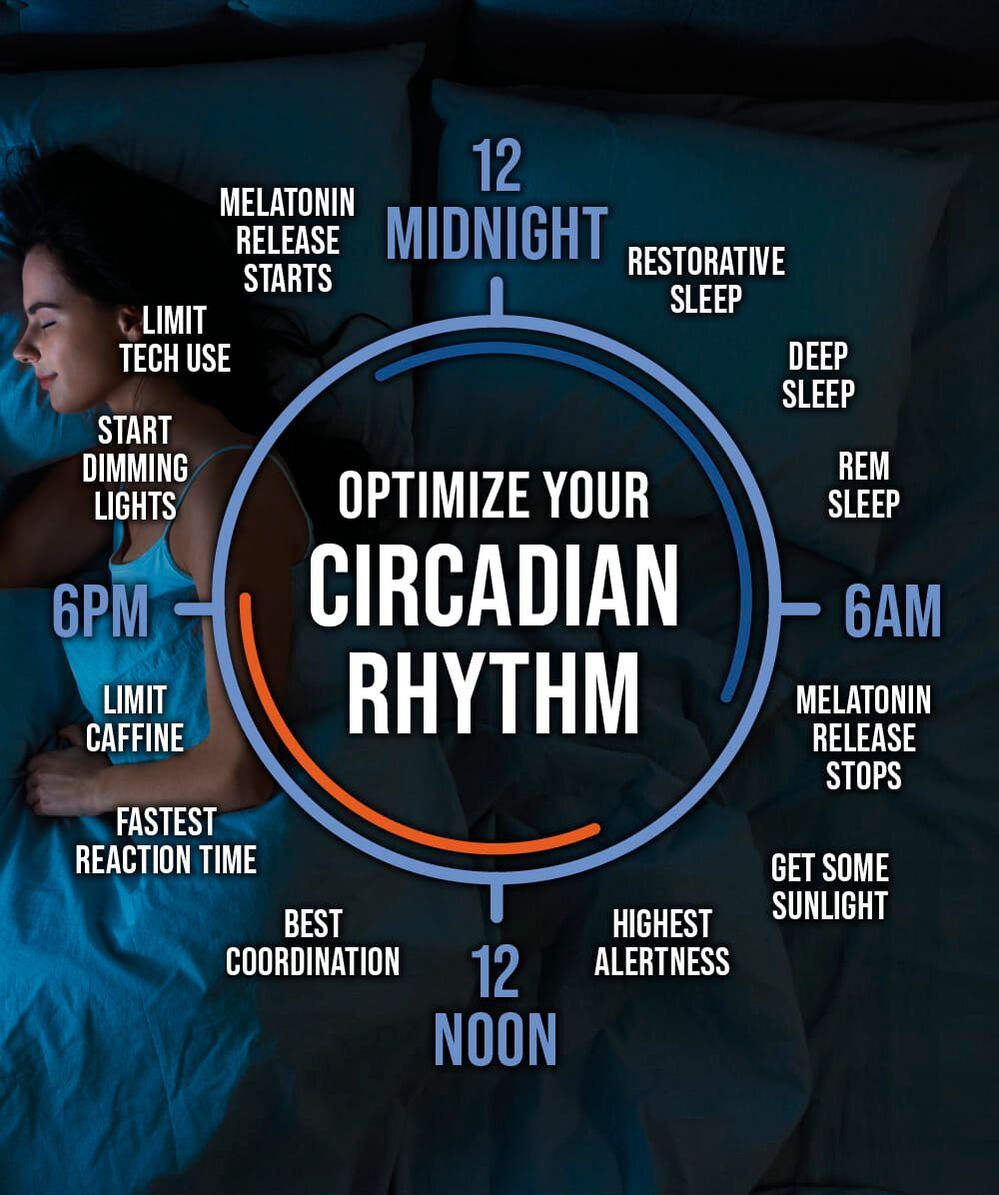|
Have you ever noticed that you tend to feel more alert and awake during the day, and more tired and sleepy at night? This is because of your body's circadian rhythm, also known as your internal clock. In this blog post, we will explore what circadian rhythm is, how it works, and why it is important for your health and well-being.
Circadian rhythm is a natural, internal process that regulates the sleep-wake cycle of your body. It is a 24-hour cycle that is controlled by a group of cells in the brain called the suprachiasmatic nucleus (SCN). The SCN receives information about light and darkness from the eyes, and uses this information to synchronize your body's internal clock with the external environment. Circadian rhythm works by regulating the production of hormones and neurotransmitters that control your sleep-wake cycle. The most important hormone in this process is melatonin, which is produced by the pineal gland in the brain. Melatonin is released in response to darkness, and helps to promote sleepiness and prepare your body for sleep. In addition to melatonin, other hormones and neurotransmitters that are involved in circadian rhythm include cortisol, adrenaline, and serotonin. Cortisol is a hormone that is released in response to stress, and helps to keep you alert and awake during the day. Adrenaline is a neurotransmitter that is released in response to excitement or stress, and helps to increase your heart rate and blood pressure. Serotonin is a neurotransmitter that is involved in mood regulation, and helps to promote feelings of happiness and well-being. Circadian rhythm is important for your health and well-being because it helps to regulate your sleep-wake cycle, which is essential for maintaining good health. When your circadian rhythm is disrupted, it can lead to a variety of health problems, including insomnia, depression, anxiety, and obesity. In addition to these health problems, circadian rhythm disruption has also been linked to an increased risk of chronic diseases, such as diabetes, heart disease, and cancer. This is because circadian rhythm disruption can lead to changes in the production of hormones and neurotransmitters that are involved in these diseases. There are several things that you can do to optimize your circadian rhythm and promote better sleep. These include establishing a regular sleep schedule, avoiding caffeine and alcohol, exercising regularly, avoiding bright lights at night, creating a relaxing bedtime routine, and getting morning sunlight. Exposure to natural light in the morning helps to reset your body's internal clock and promote wakefulness during the day. This is because sunlight contains blue light, which is the most effective type of light for regulating your circadian rhythm. So, try to spend some time outside in the morning, or open your curtains to let in natural light. By taking these steps, you can help to promote better sleep and improve your overall health. In conclusion, circadian rhythm is a natural, internal process that regulates your sleep-wake cycle. It is important for your health and well-being, and can be improved by establishing a regular sleep schedule, avoiding caffeine and alcohol, exercising regularly, avoiding bright lights at night, creating a relaxing bedtime routine, and getting morning sunlight. By taking these steps, you can help to promote better sleep and improve your overall health.
0 Comments
Leave a Reply. |
AuthorDamian Solorzano is Health and Wellness Influencer, Respiratory Specialist and Health Coach who is passionate about optimizing personal health. Categories
All
Archives
March 2024
|

 RSS Feed
RSS Feed